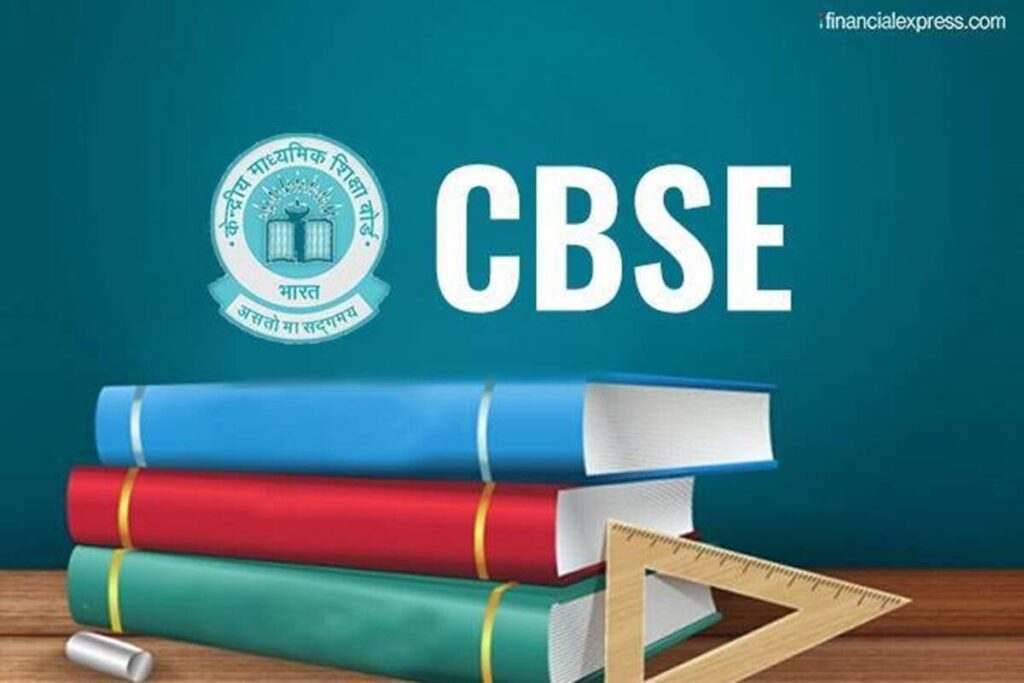
Quick Intake
CBSE has come up with a new solution to keep board results and other important documents secure and tamper-free. It has collaborated with Centre of Excellence for BlockChain Technology of National Informatics Centre under Ministry of Electronics and Information Technology (MeitY), Govt. of India to create the ‘Academic {BlockChain} Documents’ software.
Students, schools and other academic institutions can use the software through the CBSE website created for this purpose. They can use it for easy document verification.
How to use this blockchain technology
- All users viz. students, educational institutions, employers can verify academic documents by visiting https://cbse.certchain.nic.in or CBSE Main website https://cbse.gov.in .
- Click on “Verify” menu option on top menu bar available on the home page.
- Select the class from the pop-up. Input basic details like Roll No, Date of Birth (in case of Class X only), Exam Year, Exam Type and Student Name (partial) and press ‘Go’ to confirm.
- Once the details are validated, the marks statement (available presently) of the student is displayed.
How does it work?
BlockChain Technology records the data in a distributed ledger with ownership of all participating stakeholders.
The data is recorded in the chain based on the consensus among the stakeholders and simultaneously replicated at all the locations in the distributed network of BlockChain nodes.
This eliminates the dependency on a third party for verification. Data is linked and stored with cryptographic security so that it is immutable and traceable.
The linking of the blocks in the blockchain ensures that they cannot be tampered with and the data is trustable as it can be verified across the participating stakeholders.
How is CBSE using blockchain technology?
CBSE Academic {BlockChain} Documents (ABCD) has been established using BlockChain Technology to record the certificates in a linked chain structure. The result certificates are kept in a distributed manner at different locations involving multiple stakeholders, protecting it against any attempt of tampering.
To begin with, CBSE has made available the digitally signed certificates of Classes 10 and 12 for years 2019-2021 and will gradually push the certificates of previous years in the coming months.
Upon issuance of new certificates by CBSE, the digitally signed certificates will be sent to the Blockchain-based system creating an additional secure link.
This network is established with nodes at Bangalore, Pune and Jaipur. Presently, the Certificate Chain is managed by NIC at its data centres.
Why did CBSE create this?
One of the challenges faced is the verification of the authenticity of certificates produced by the candidates for admissions, jobs, loans etc.
The verification of the correctness and genuineness of the certificate with the concerned universities or boards requires considerable effort and processing time.
Hence most of the times, the institutes/organizations insist on the production of the original certificate by the candidates.
Academic {BlockChain} Documents (ABCD) addresses these challenges regarding the verification of documents produced by candidates.
CBSE had earlier developed its own digital academic repository called ‘Parinam Manjusha’ in 2016. This repository has been integrated with NEGD’s (National e-Governance Division) Digital Locker platform.
What kind of documents can you get?
At present, the result data of Classes 10 and 12 examinees of eighteen (18) years i.e. 2004 to 2021 is available online for downloading of digital academic documents by students and verification by employers and higher education institutions.
Approximately, 12 crore digital real-time generated, digitally signed and PKI based QR coded academic documents such as marks sheets, migration certificates and pass certificates are available in this repository.
Digitisation of legacy records of Classes 10 and 12 from 1975 onwards is in progress and will be appended to the repository in a year’s time.
Who all can benefit from this?
The Academic BlockChain Document can be used by various educational institutes for verification at the time of admission for higher studies and companies for job offers.
It can also be used for online counselling by institutes, by integrating their systems with plug-in interfaces.
The banks and financial institutions can also use this system for sanctioning educational loans and merit-based scholarships based on the qualifications of the applicants.
One can verify the authenticity of the certificates even after several years of issuance. It will provide the trail of all the insertions or changes made on a particular certificate.
Source of this Post – The Hindu
Like this article? You can share it right from here !!
